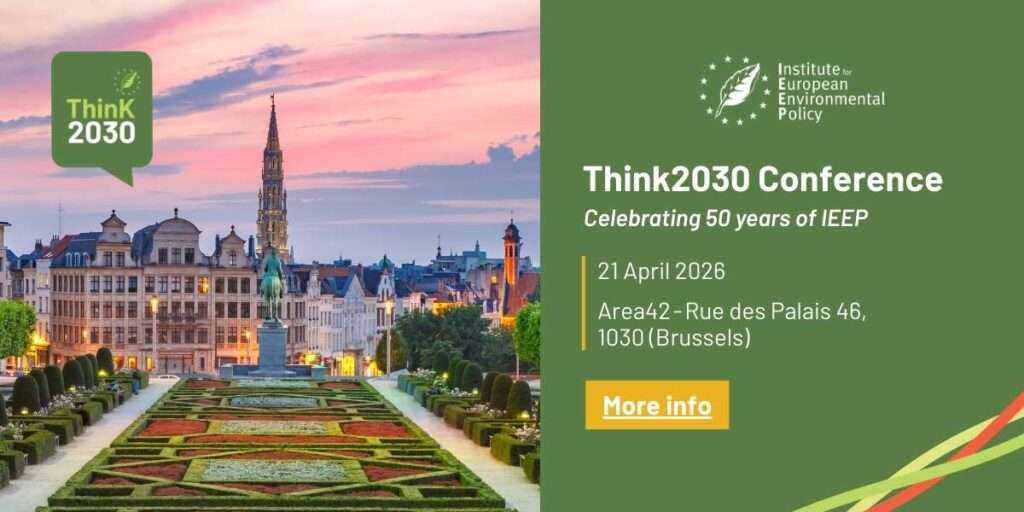AUTHORS: Nora Hiller – Ben Allen
The recent destructions we observe in Europe and across the world due to extreme weather are yet another call for the need of sustainable investments to safeguard future generations. EU policies need to be drafted with democratic transparency, coherence and accountability, as well as being underpinned by robust scientific evidence.
The need to strengthen the science-policy interface in political decision-making is clear and essential. This is particularly true for the EU Taxonomy to have credibility and to genuinely drive investments that provide substantial contributions to climate action, biodiversity, water, pollution prevention and circular economy.
This think-piece by IEEP, in collaboration with Prof. Marzia Traverso (RWTH Aachen University), points to the need to make robust use of scientific evidence in political decision-making by strengthening the science-policy interface. Decision-makers and stakeholders are urged to be aware of the elements in the process that should be improved, including a transparent and accessible nature of the evidence and the interpretation of that evidence through independent advice. As part of the political process, lengthy decision-making process may inevitably bring compromises and changes going from a proposal to the final decision. For the final decision to appropriately take scientific evidence into account, it is important for it to be underpinned by the following indispensable aspects:
- Strengthened transparency throughout the decision-making process, which includes explaining what the evidence is, and how and why it was used in the process
- Independence and objectivity of advice signifies gathering differing views and interpretations from a range of stakeholders and analyse the evidence against the objective need
- Improved accessibility in the decision-making process, meaning to provide both access to evidence and ensuring its communication (and understanding) to all audiences
The importance of driving the science-policy interface is a lesson learned from the EU Taxonomy process. The unified EU-wide system of the Taxonomy was established to encourage sustainable investments for those activities that are essential to achieving the European Green Deal objectives. The above-described elements are vital to ensure the robust use of scientific evidence on the route to defining criteria which determine whether an economic activity and the investment in it is deemed sustainable. In this phase, the Platform on Sustainable Finance (operating at a technical level) gathers and coordinates input from external experts from the public and private sectors, in light of supporting the science-policy interface.*
Providing and using scientific evidence and independent advice is fundamental to steer decision making in the political process. This applies to the political process of drafting legislation as well as the work of technical expert groups. The full think-piece offers several recommendations that can be drawn for the Taxonomy approach and wider EU-policy making. Attention is drawn to citizens’ involvement, undertaking cyclical reviews, enhanced communication and the advice to create an independent scientific advisory council – in the spirit of the IPCC, dedicated to Europe.
Download the full think-piece with recommendations for improving the use of science and evidence in decision-making.
*Read this IEEP news item on the public consultation by the Platform on Sustainable Finance. Until 24 September, the public is asked to respond to draft criteria, and the results of the public consultation will be incorporated into the final recommendations to the European Commission.
The role of science advice in policymaking, its importance and use, will be discussed during this webinar on 20 September, jointly organised by IEEP and EEAC Network, with a focus on net emission reduction and climate neutrality.
Photo by frappo on Unsplash


